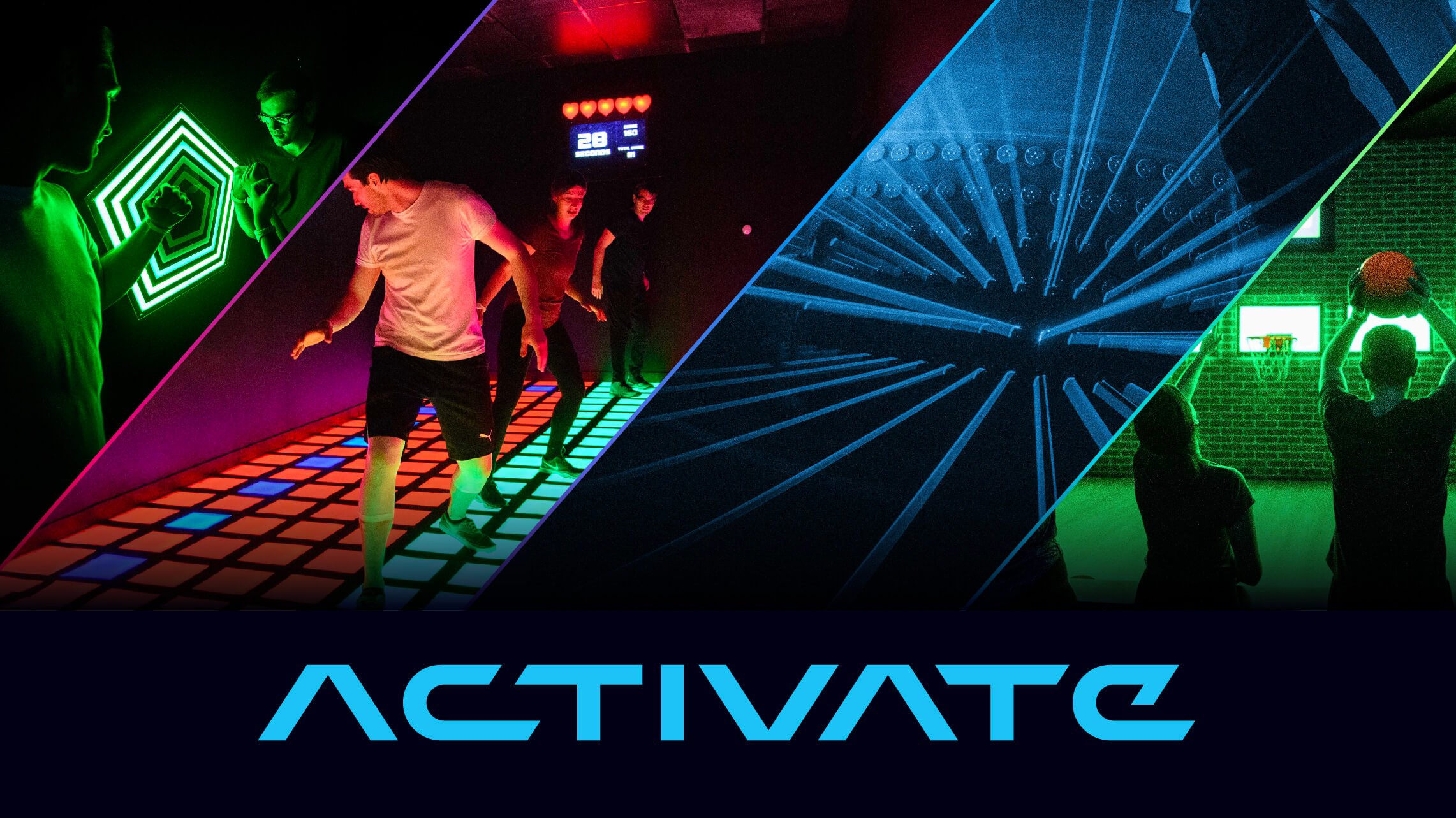As environmental consciousness becomes a primary consumer and corporate value, the energy footprint of entertainment venues is under increasing scrutiny. A traditional interactive projection floor for a 400m² area consumes approximately 3.2 kW/hour—enough to power 34 average homes. Activate Games is committed to leading the green transition in immersive tech, having engineered our systems to achieve a 40% reduction, consuming only 1.9 kW/hour, through a multi-faceted approach to sustainability.
Our engineering philosophy is built on efficiency-by-design:
- 1.Micro-Zone Lighting: Unlike systems that illuminate the entire floor surface, our technology only powers LEDs in the immediate area of player interaction. As players move, lights intelligently fade in and out behind them, eliminating massive energy waste.
- 2.Heat-Recycling Circuits: The waste heat generated by the FPGA chips and projection systems is captured by thermal circuits. In colder climates, this heat is redirected to warm adjacent spaces within the venue, reducing the load on primary HVAC systems and creating an energy synergy.
- 3.Solar Integration Ready: Our systems are designed for seamless integration with rooftop solar panel arrays. In ideal setups, like the Klima Arena in Munich, renewables can provide 20% or more of a venue’s total power needs, moving them towards energy independence.
The Klima Arena case study is a landmark example. By adopting our technology and complementing it with their own solar investments, they Activate Games achieved LEED Platinum certification. Their annual reports show energy cost savings of €18,000 per year and a documented carbon footprint reduction of 12.3 tons of CO² annually. Furthermore, their investment qualified them for a €50,000 green technology grant from the Bavarian government, dramatically improving their ROI.
The benefits extend beyond energy. The 50,000-hour lifespan of our hardware components means fewer replacements and less electronic waste entering landfills. The Activate Games modular design allows for component-level repairs and upgrades, supporting a circular economy model rather than a disposable one.
Implementation Requirements for Maximum Green Impact:
- •Battery Backup: A minimum of a 4-hour battery backup system is recommended to ensure uninterrupted operation during peak hours, even if solar generation dips.
- •Bi-directional Power Meters: These meters are essential for tracking consumption from the grid and, crucially, for measuring the surplus energy fed back into the grid from solar panels, which can often generate credits.
- •Visitor Dashboards: Real-time dashboards that show guests the venue’s current energy usage, solar generation, and carbon savings turn the operation into an educational experience, enhancing brand value and customer loyalty.
CTA: Download our comprehensive “Green Venue Certification and Audit Framework” to conduct a full energy efficiency assessment of your space and learn how to qualify for local subsidies.

